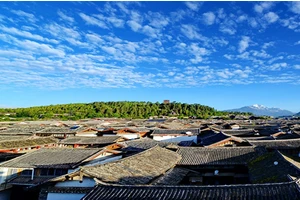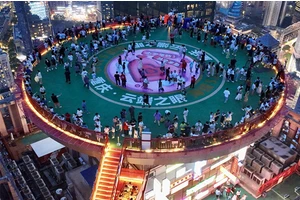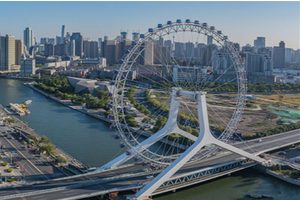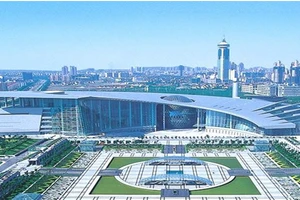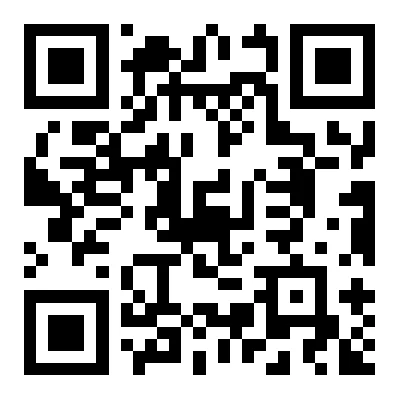Tourism affects life.
Tourism has an impact on society, economy and culture, and the following are some major impacts:
Economic impact: Tourism is an important economic pillar, which can create employment opportunities and wealth, promote local economic development and improve the living standards of local residents.
Social impact: Tourism can promote exchanges and understanding between different regions, enhance friendship and understanding between people, promote cultural exchanges and promote harmonious social development.
Cultural influence: Tourism can promote the protection and inheritance of cultural heritage, increase people's understanding and knowledge of history, culture and art, and promote cultural diversity and exchange.
Environmental impact: the impact of tourism on the environment can not be ignored. The development of tourism may bring environmental pollution and resource consumption, so it is necessary to strengthen environmental protection and management.
Political influence: Tourism can also promote international exchanges and cooperation, enhance friendship and mutual understanding among countries, and promote international peace and stability.
In a word, tourism has a far-reaching impact on society, economy and culture. It is necessary to pay attention to all kinds of impacts, strengthen management and protection and realize sustainable development while developing tourism.
Factors affecting tourism demand
First, objective factors
(A) sufficient disposable income
1. Disposable income: income after deducting all taxes.
2. Disposable income: after deducting all taxes and social consumption (such as health life insurance, old-age pension and advance payment of unemployment allowance, etc.), as well as the part that must be consumed in daily life (clothing, food, housing, transportation, etc.), the remaining part of income.
(2) Sufficient leisure time
1. Daily leisure
2. Leisure every week
3. Public holidays
4. Paid holidays
(3) Other objective factors
1. Social conditions of tourist destination countries: political and economic system, political environment and social security.
2. Accessibility: time and space distance, entry visa, traffic conditions, etc.
3. Personal factors of tourists: age, gender, race, education level, physical condition, etc.
4. Family structure: Families with infants under 4 years old are less likely to travel abroad.
Second, the subjective factor-tourism motivation
(A) the definition of tourism motivation
Motivation: a subjective factor that motivates people to act.
Tourism motivation: the internal factor to promote a person's tourism.
(B) tourism motivation and personal needs
1, the need for respect and self-realization.
(1) physiological needs. In order to survive, there is a need for essential basic living conditions. For example, because of hunger and thirst, there is a need for food, clothing and shelter.
(2) security needs. Refers to the need to maintain personal safety and health.
The first two belong to physiological and material needs.
(3) Love needs or social needs. The need to participate in social interaction and gain social recognition and sense of belonging.
(4) the need to be respected. Refers to the need to be respected in social activities and gain certain social status, honor and power. When a person is at home, everything needs to be taken care of by himself, while as a tourist, someone will serve you all the time and you can enjoy the feeling of being respected.
(5) the need for self-realization. Give full play to the individual's greatest ability and realize the needs of ideals and ambitions. Some people go out to travel and inspect in order to realize their self-ambition or seek self-development, and get information or inspiration from them in order to seek development opportunities. Such as study tours and conference tours; Such as driving or hiking around the country, the world, crossing a continent, etc., to show their achievements, realize a kind of self-worth and attract people's attention.
The latter three belong to psychological and spiritual needs.
The higher the level of needs, the fewer people will be reached. Therefore, it is difficult to analyze the motives of modern popular tourists only by Maslow's hierarchy of needs theory.
2. Other needs
1) The need to explore the new and seek the different. Everyone has curiosity.
2) The need to escape the tense reality and adjust the rhythm of body and mind. In modern society, with fierce competition and accelerating pace of life, people's spirit is in a state of high tension all the year round; Problems such as crowd crowding, traffic noise and air pollution caused by industrialization and urbanization are becoming more and more serious. Therefore, people generally hope to temporarily avoid such an environment and spend some time in a place with elegant environment and fresh air, so as to adjust their physical and mental rhythm, recover fatigue and relax their nerves.
Tourism motivation may come from one of the above needs, or from two or more of them.


